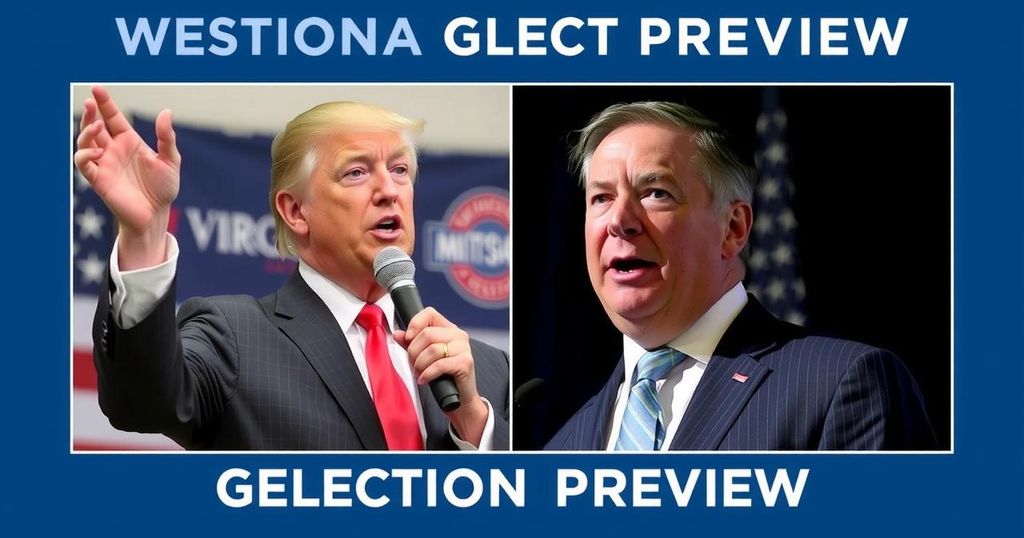Virginia Gubernatorial Election Preview: Limited Competition Ahead

The Virginia gubernatorial election is approaching with limited competition as Abigail Spanberger runs unopposed for Democrats, while Winsome Sears and Merle Rutledge compete for the Republican nomination. Ranked-choice voting has been upheld in Alaska, contrasting with opposition in five other states. An average of 16% of targeted officials faced recall between 2014 and 2023, indicating a turbulent political environment.
As the upcoming Virginia gubernatorial election approaches in 2025, the primary races exhibit limited competition. Currently, Abigail Spanberger represents the Democratic Party without opposition, while the Republican battle unfolds between Winsome Sears and Merle Rutledge. The gubernatorial primaries in Virginia have historically seen fluctuations in competitiveness, but recent patterns suggest a lack of rival candidates, particularly within Democratic circles. This trend contrasts with the situation in neighboring New Jersey, where numerous candidates are vying for the party nominations.
Abigail Spanberger, a former CIA officer and now Congresswoman for Virginia’s 7th District, has concentrated her campaign focus on childcare affordability, drawing attention to the challenges faced by working parents. Historical data on Democratic primaries reveals sporadic bouts of competitiveness, with notable instances in 2017 and 2021. In the Republican field, Winsome Sears, the incumbent Lt. Governor, has garnered support for her stance on right-to-work policies.
The gubernatorial landscape indicates that Virginia’s governorship has switched parties after the presidential elections, a trend observed since 1997. Notably, if the Democratic Party prevails in the 2025 gubernatorial race, they will reclaim leadership for the first time since 2022, while a Republican victory would stabilize their tenth consecutive gubernatorial win since the mid-1990s.
In addition to the gubernatorial race, ranked-choice voting has sustained its position in Alaska after a successful recount, amid contrasting results in other states. Recent data indicates overwhelming opposition against similar measures in five other states, highlighting a growing debate over voting systems across the nation.
Moreover, the alarming statistics regarding recall elections reveal that 16% of officials targeted for recall between 2014 and 2023 faced removal. This statistic underscores the contentious political climate affecting elected officials today, suggesting a potential increase in recall efforts in the near future as outlined in upcoming reports from Ballotpedia.
The Virginia gubernatorial election is set for November 4, 2025. With term limits precluding current governors from running, both Virginia and New Jersey will choose new leaders that year. The Democratic primary currently lacks a competitive edge in contrast to New Jersey, where various candidates are campaigning. Historically, Virginia’s gubernatorial primaries have shown volatility, with periods of competitiveness followed by unopposed candidates. Furthermore, ranked-choice voting has become a focal point in many elections. Alaska upheld its ranked-choice system amidst backlash from multiple states, illuminating the divide in the effectiveness and acceptance of such voting methods across the nation.
In summary, the Virginia gubernatorial election is shaping up to be less competitive compared to other regions, with Abigail Spanberger running unopposed for the Democrats and a duel between Winsome Sears and Merle Rutledge representing the Republicans. The historical trend of party control in Virginia suggests significant implications based on the outcome of this election. Moreover, the persistence of ranked-choice voting in Alaska and the rising recall efforts highlight a rapidly evolving political landscape that warrants careful attention in the future.
Original Source: news.ballotpedia.org








